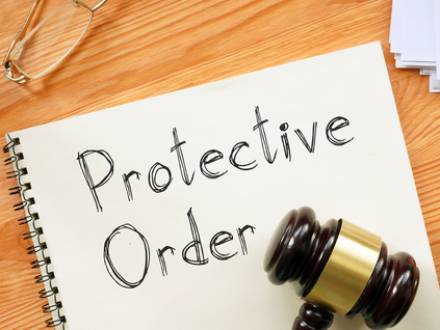Recent Blog Posts
What Type of Schedule Can You Expect in Your Texas Parenting Plan?
 One of the most critical things a Texas family lawyer must do for his or her clients is to stay informed of any changes that are made to Texas family law statutes. If an attorney is not well-versed in the most current laws, he or she is not able to provide clients with the legal representation they deserve.
One of the most critical things a Texas family lawyer must do for his or her clients is to stay informed of any changes that are made to Texas family law statutes. If an attorney is not well-versed in the most current laws, he or she is not able to provide clients with the legal representation they deserve.
The 89th Texas Legislative Session recently made significant changes to the parenting time schedules for custodial and non-custodial parents. The 2024 Texas Standard Possession Order is now in effect and requires a standard schedule for the majority of child custody situations, as long as this schedule is in the best interest of the child.
The schedules are broken into three different categories based on the distance between the co-parents’ homes. The following is a brief overview. For more detailed information and to learn how this schedule could impact your parenting time, call our office for details.
Is Parental Alienation After a Divorce Real?
 Few people get through divorce without some emotional bumps and scrapes along the way. Dividing a shared life almost always involves serious disagreement, especially if spouses share minor children and even more so if spouses are angry at each other for perceived misbehavior. Despite their frustrations with their former spouses, most adults can see the situation rationally enough to understand that they should not be burdening their children with the drama, anger, and resentment of adult dynamics during and after a divorce.
Few people get through divorce without some emotional bumps and scrapes along the way. Dividing a shared life almost always involves serious disagreement, especially if spouses share minor children and even more so if spouses are angry at each other for perceived misbehavior. Despite their frustrations with their former spouses, most adults can see the situation rationally enough to understand that they should not be burdening their children with the drama, anger, and resentment of adult dynamics during and after a divorce.
Some people, however, cannot or will not protect their children from these difficult behaviors, while others actively use their children as a way to exact revenge after a nasty divorce. At Powers Kerr & Rashidi, PLLC, when our clients suspect their former spouses are turning their children against them, we take these concerns seriously. Not every suspicion turns out to be true, but if your ex is trying to alienate your child from you, you need to take action – fast. Read this blog to learn more about parental alienation and then call our experienced team of Texas child custody attorneys to find out what your options may be.
My Ex Is Giving Away Money During Our Divorce
 Divorces tend to bring out strong emotions, especially when the topic of asset division occurs. Your ex may attempt to hide or dissipate assets by giving money away during your divorce proceedings so he or she does not have to split it with you. If you suspect that your ex is giving away money or otherwise hiding assets, you will need the help of a skilled Texas divorce lawyer to understand your options for stopping this behavior.
Divorces tend to bring out strong emotions, especially when the topic of asset division occurs. Your ex may attempt to hide or dissipate assets by giving money away during your divorce proceedings so he or she does not have to split it with you. If you suspect that your ex is giving away money or otherwise hiding assets, you will need the help of a skilled Texas divorce lawyer to understand your options for stopping this behavior.
Signs Your Ex Is Hiding Assets
Giving away money before or during your divorce proceedings is a major sign that your ex is trying to hide or dissipate assets, but it is not the only indicator that your ex may be trying to keep assets from division.
Signs that your ex is trying to hide assets from you include:
-
Overpaying on taxes or debts in order to claim the refunded amount once a divorce is finalized
Do Stay-at-Home Moms Automatically Get Spousal Support in Texas?
 Spousal support can be a complicated topic during divorce, especially if one parent has stayed home to raise shared children through a marriage. Many stay-at-home moms think that they automatically qualify for spousal support in Texas, but there are actually several factors that determine if someone is eligible for spousal support. There are additional determiners for how much spousal support a stay-at-home mom may receive.
Spousal support can be a complicated topic during divorce, especially if one parent has stayed home to raise shared children through a marriage. Many stay-at-home moms think that they automatically qualify for spousal support in Texas, but there are actually several factors that determine if someone is eligible for spousal support. There are additional determiners for how much spousal support a stay-at-home mom may receive.
A skilled Texas spousal support lawyer can advocate for your rights to spousal support during your divorce.
Qualifications for Texas Spousal Support
In Texas, certain qualifications must be met for an individual to qualify for spousal support. While stay-at-home mothers may have a higher chance of proving that they meet these qualifications, it is important to note that neither spouse in a divorce will automatically be awarded a certain amount of spousal support.
Do Protective Orders Mean Losing Child Custody?
 Child custody is a topic that comes with high emotions, and the division of possession (visitation) and conservatorship (decision-making responsibilities, or custody) is often one of the most contested parts of a divorce. If a protective order has been issued, the parent to whom the protective order applies will almost certainly see his or her child custody reduced or terminated altogether. Once a protective order is filed, it can be difficult to regain child custody.
Child custody is a topic that comes with high emotions, and the division of possession (visitation) and conservatorship (decision-making responsibilities, or custody) is often one of the most contested parts of a divorce. If a protective order has been issued, the parent to whom the protective order applies will almost certainly see his or her child custody reduced or terminated altogether. Once a protective order is filed, it can be difficult to regain child custody.
An experienced Texas child custody lawyer can help you understand your next steps if you are dealing with a protective order during your divorce.
Protective Orders and Your Divorce
Protective orders in Texas are typically filed in response to allegations of imminent threat of harm or danger. When a protective order is filed during divorce, it can significantly impact the outcome of divorce proceedings, including the division of child custody and the allocation of spousal support payments.
How Is Investment Real Estate Handled in a Texas Divorce?
 A divorce is challenging enough, but when the issue of investment real estate arises, things can become even more complicated. During a divorce, your assets and property will be subject to division, and this will include any investment real estate you and your spouse purchased during your marriage. To understand how investment property might be divided in your divorce, and to ensure your interests are protected throughout the entire divorce process, speak with a skilled Texas property division attorney.
A divorce is challenging enough, but when the issue of investment real estate arises, things can become even more complicated. During a divorce, your assets and property will be subject to division, and this will include any investment real estate you and your spouse purchased during your marriage. To understand how investment property might be divided in your divorce, and to ensure your interests are protected throughout the entire divorce process, speak with a skilled Texas property division attorney.
How Is Real Estate Divided in Texas?
Texas is a community property state, which means that most property acquired during a marriage is seen as equally owned by both spouses and will be subject to division, even if only one spouse’s name is on the paperwork.
How Do I Protect My Assets in a Divorce?
 Divorce is a stressful process, especially if you have multiple assets or high net worth assets that you want to protect. It can be difficult to navigate the divorce process while trying to keep your business or other important assets intact, which is why the experience of a Texas divorce attorney is essential. Your divorce lawyer can advocate for a fair division of assets during your divorce.
Divorce is a stressful process, especially if you have multiple assets or high net worth assets that you want to protect. It can be difficult to navigate the divorce process while trying to keep your business or other important assets intact, which is why the experience of a Texas divorce attorney is essential. Your divorce lawyer can advocate for a fair division of assets during your divorce.
Am I Required to Split My Assets in a Texas Divorce?
In Texas, community property laws determine how couples will split their assets during a divorce. In general, assets that are acquired before a marriage occurs will be considered separate property, and these assets will not be subjected to division. On the other hand, any assets that are acquired during the marriage are typically considered marital property.
How Do I Navigate a Contested Texas Divorce?
 Divorces are challenging enough, but when couples cannot make decisions about their divorce or there is a history of abuse and a financial or power imbalance in a divorce, the divorce process has the potential to become contested.
Divorces are challenging enough, but when couples cannot make decisions about their divorce or there is a history of abuse and a financial or power imbalance in a divorce, the divorce process has the potential to become contested.
Contested divorces are often emotionally charged and stressful to navigate, something which makes having an aggressive Texas contested divorce lawyer on your side necessary as you advocate for your rights.
What Is a Contested Divorce?
A contested divorce is a divorce where the soon-to-be ex-spouses have trouble finding common ground on important divorce issues. Spouses may argue about child custody or visitation arrangements, spousal support and child support payments, and the division of assets like business, homes, and vehicles.
How Long Do I Have to Pay Child Support in Texas?
 Child support can be a heated topic, and many people find it difficult to work out child support arrangements as part of their divorce. However, the court does put the best interests of a child first, and child support payments are often a part of ensuring a child is cared for after a divorce.
Child support can be a heated topic, and many people find it difficult to work out child support arrangements as part of their divorce. However, the court does put the best interests of a child first, and child support payments are often a part of ensuring a child is cared for after a divorce.
If you are dealing with child support payments, you may be wondering how long you need to pay them and what it takes to stop your child support payments. An experienced Texas child support attorney can provide you with further guidance.
When Does Texas Child Support End?
In Texas, the Family Code states that you are supposed to pay child support, as per your court-ordered arrangement, until one of the following things occurs:
-
The latter of either your child turning 18 or graduating high school
Should I Include Evidence of Abuse in My Divorce?
 Divorce is challenging at the best of times, and marriages that have a history of abuse or power imbalances can be even more stressful to end. Contested divorces are those that include allegations of abuse or other emotionally charged issues that make it difficult for spouses to settle the important decisions needed to finalize their divorce.
Divorce is challenging at the best of times, and marriages that have a history of abuse or power imbalances can be even more stressful to end. Contested divorces are those that include allegations of abuse or other emotionally charged issues that make it difficult for spouses to settle the important decisions needed to finalize their divorce.
If there has been abuse throughout your marriage, it can be helpful to include evidence of this in your divorce case, especially if you need the judge to make decisions based on your and your children’s safety. An experienced Texas contested divorce lawyer can guide you through this process.
Types of Abuse in Marriage
Navigating a divorce after abuse is difficult, and several different types of abuse may be present in your marriage. The Texas Family Code outlines “cruelty” as grounds for a fault-based divorce in the state, and any of these types of abuse have the potential to be cited in your divorce:




 512-610-6199
512-610-6199
